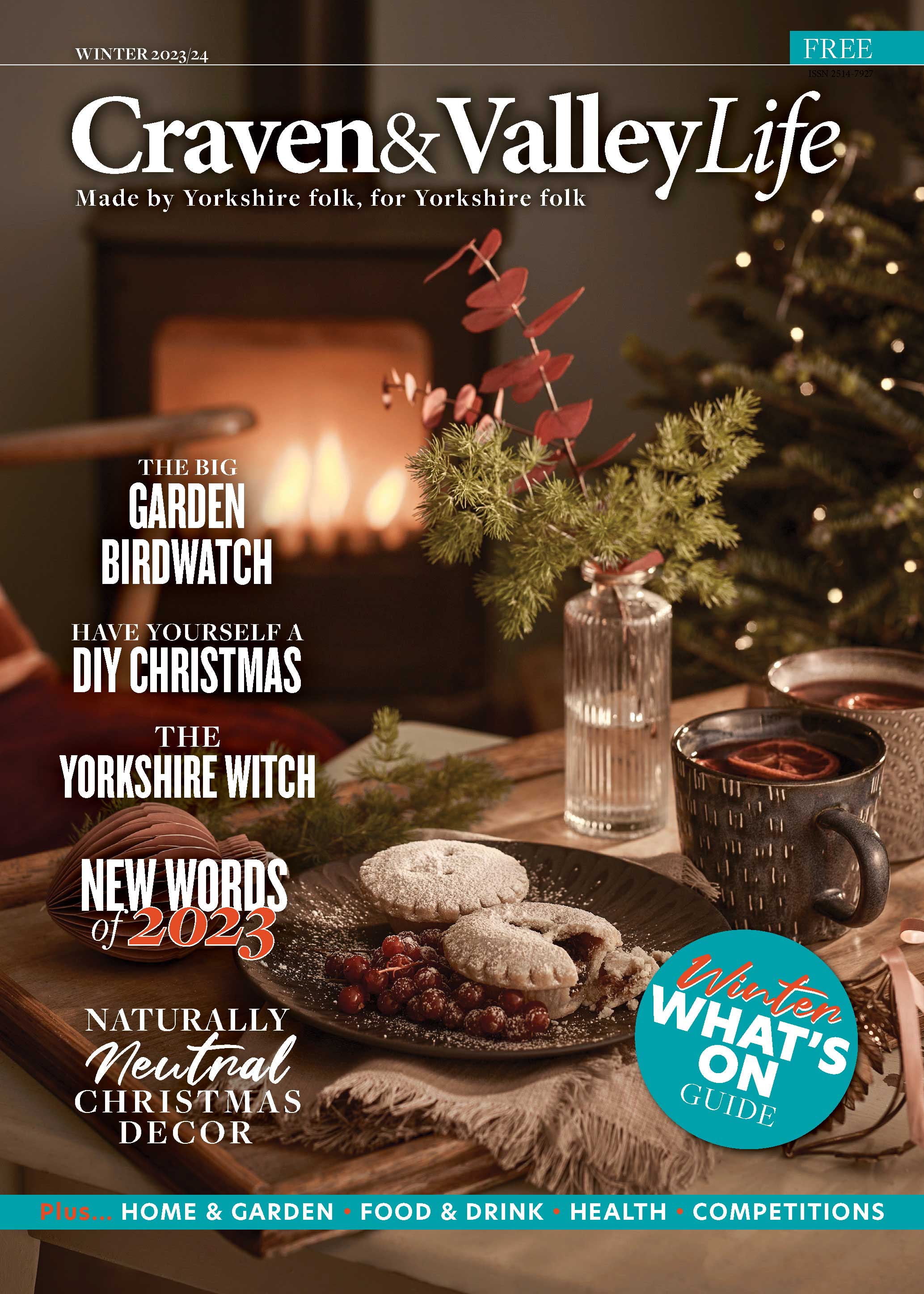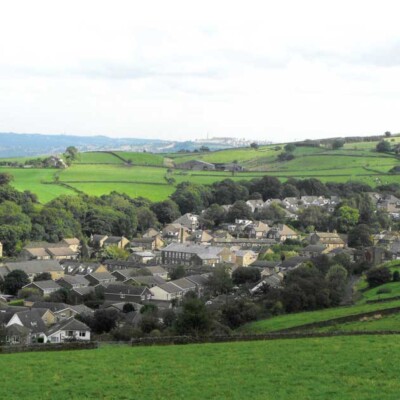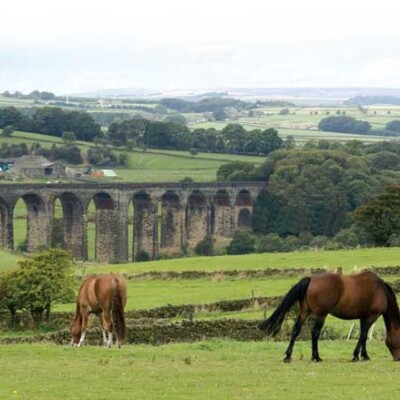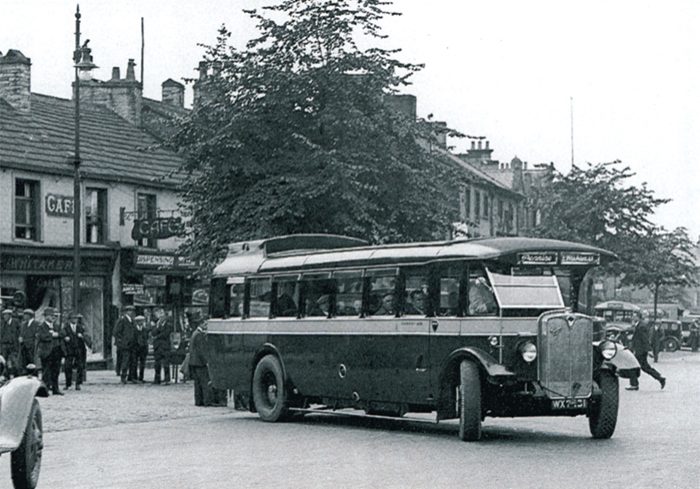
The Last Bus Ever
by Craven and Valley Life
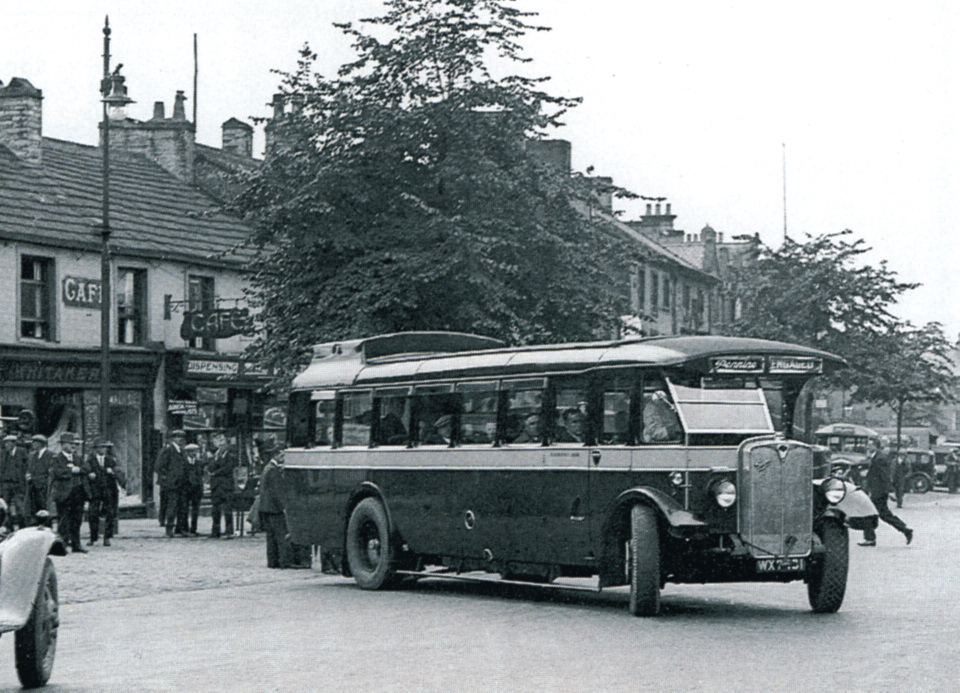 They’ve covered millions of miles on Yorkshire Dales roads, but now the orange and black buses of Pennine Motor Services have driven back to the depot for the last time.
They’ve covered millions of miles on Yorkshire Dales roads, but now the orange and black buses of Pennine Motor Services have driven back to the depot for the last time.
On Friday 16 May at 9.15pm, the final bus left Stand 3 at Skipton bus station to make the last journey to Settle, and there were lumps in the throats of the locals who turned out to ride the bus one last time or see it rumble down the road.
Cameras and smartphones were out in force to capture the last chapter in a piece of Yorkshire transport history.
 Company boss Maurice Simpson, whose grandfather and two great uncles founded the business in 1925, blamed a 20 per cent reduction in free travel payments from North Yorkshire Council being reduced by 20%, and competition from the big bus company Transdev between Skipton, Barnoldswick and Burnley.
Company boss Maurice Simpson, whose grandfather and two great uncles founded the business in 1925, blamed a 20 per cent reduction in free travel payments from North Yorkshire Council being reduced by 20%, and competition from the big bus company Transdev between Skipton, Barnoldswick and Burnley.
The company’s official announcement from Mr Simpson said: “It is with regret that as from close of business on the 16th May, 2014 Pennine Motors will no longer trade as a bus company.
“I am sure you will appreciate that this has been a very difficult decision for myself and my family as my grandfather founded the business in 1925 together with his brother and brother in law, but unfortunately it is no longer financially viable.
“I would like to thank all our loyal customers for their unwavering support over the last 88 years.”
As he prepared to clear his office and make arrangements for selling his fleet of 14 buses, Mr Simpson spoke to Northern Life about the company’s special relationship with its customers. “We’ve some very good drivers and I’m sure they’ll be missed,” he said. “They know the passengers and children on their routes and do their best to be helpful.
“We’ve got 19 drivers and three mechanics, and most of them have managed to find new jobs.
“We’ve tried our best to keep going but the situation has got worse over the past four years or so and we just couldn’t carry on. It’s a very sad day.”
The company was started by brothers Arthur and Vic Simpson, who owned and ran a garage, and their brother-in-law Jim Windle, a bus driver, at the end of 1925. They chose the name Pennine as appropriate to the backbone of England where they intended to operate.
Their first bus, a new 14-seat char-a-banc built by the long-gone Overland company, ran from Skipton High Street on Christmas Eve morning. It carried only three passengers on the entire jouney and by the time it arrived in Settle it was empty, not a very encouraging start to the venture.
Fortunately, Dales folk soon took to the new services and the company grew, acquiring more buses mostly from Lancashire’s Leyland Motor Company and moving into a garage at Gargrave in 1928.
In addition to running excursions and private bookings, the company ran regular services to Ingleton, Lancaster and Morecambe, Windermere, Hellifield, Malham and little villages such as Airton, Rathmell, Tosside and Wigglesworth.
 Originally, the company livery was maroon, and the orange-and-black was adopted purely by chance. On a visit to Leyland Motors to look at new buses, the Pennine partners saw a bus being painted in the factory football team’s colours of
Originally, the company livery was maroon, and the orange-and-black was adopted purely by chance. On a visit to Leyland Motors to look at new buses, the Pennine partners saw a bus being painted in the factory football team’s colours of
orange with a black stripe. They liked it, and later applied it to their own fleet.
As well as acquiring new vehicles, the company often bought buses second-hand and applied the Pennine livery. In later years, the company bought second-hand out of necessity as the price of new vehicles soared and profits became squeezed.
They may have lacked the comfort and accessibility of modern rivals, but they were safe, they did the job and the public liked them.
The late Jake Thackray, Yorkshire folk singer and humorist, featured Pennine buses in his TV programme for his song Country Bus, which sums up their robust Yorkshire character:
“Country bus, north country bus, Grunting and chuntering, cantankerous, Country bus, north country bus, But no other bus would be good enough for us.” It was a tongue-in-cheek but affectionate tribute to a Yorkshire institution that is no more.

